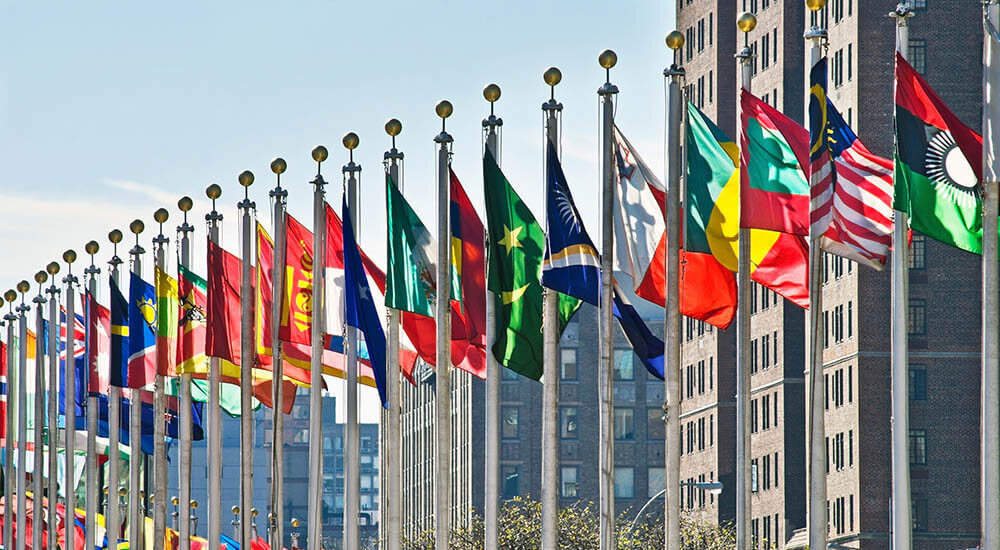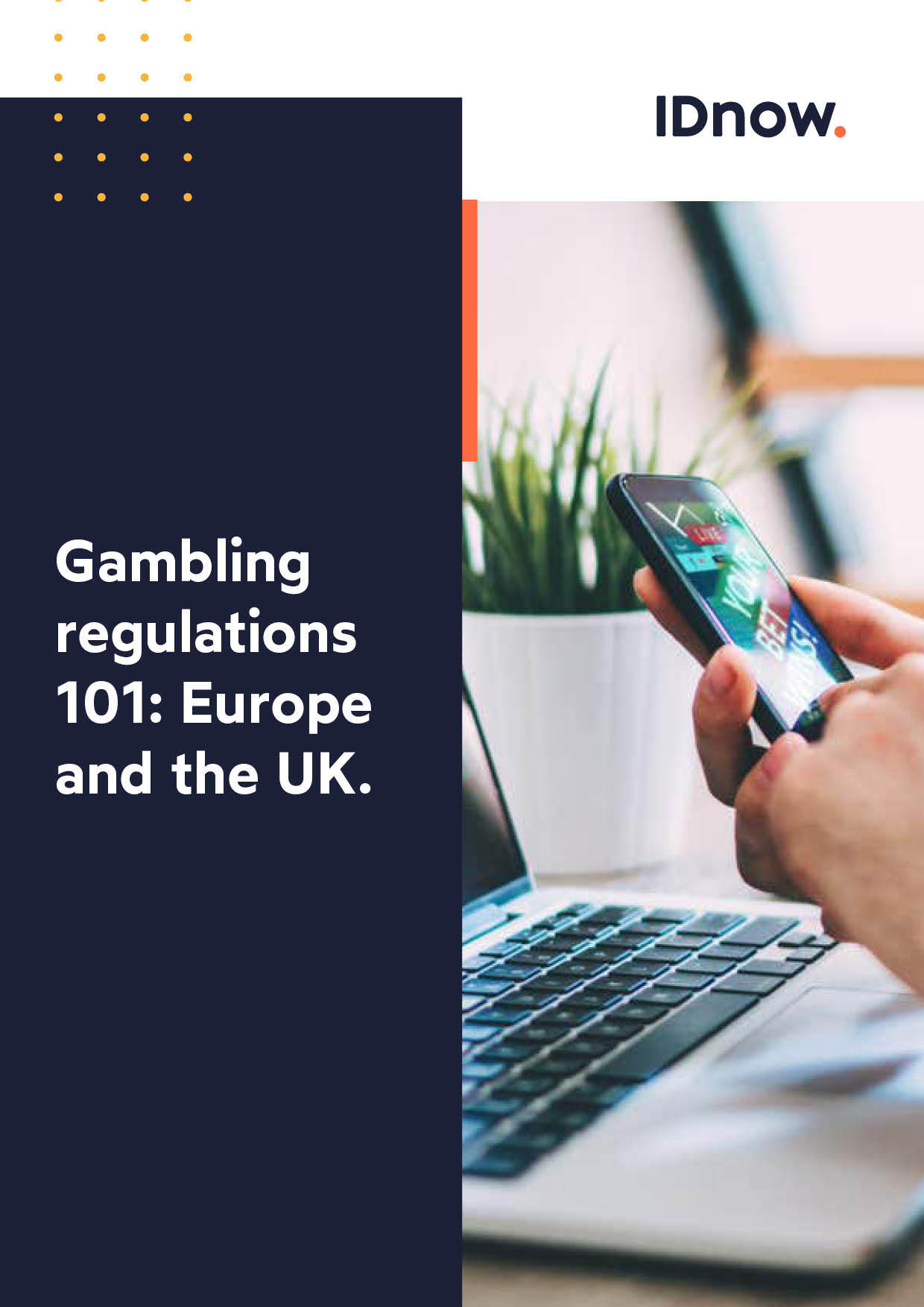Although regarded as a “single state” in relation to its economy, each of the 27 members of the European Union is responsible for passing its own laws. Because of this, online gaming regulations can be quite complex, but certainly worth understanding and complying with.
The global gambling market is estimated to reach roughly $876 billion by 2026, evolving at a CAGR of 3.6% over the assessment period. The European online gambling market is expected to grow by 9.20% by 2025, fueled mainly by software and hardware innovations and the rising popularity of gambling. As such, the gambling industry in Europe shows no sign of slowing down. Still, with scams, gambling addiction, money laundering cases, underage gambling, and other pressing issues, how is gambling regulated across the European Union? What do online gaming companies need to be aware of?
Regarding compliance and regulations, it is crucial to note that they vary throughout Europe. That said, KYC (Know Your Customer) requirements are standard regardless.
A well-regulated market.
The European Gaming and Betting Association (EGBA) was formed to keep the casino industry under control. Their main objective was to promote a sustainable iGaming sector in Europe to help players enjoy a safe and fun experience inside a well-regulated market.
Based in Brussels, the association has worked to shape gambling regulations in the region. Online gaming companies associated with EGBA abide by a large set of industry standards designed to complement the numerous licensing guidelines they already adhere to in European nations.
Such European industry standards incorporate Responsible Remote Gambling Measures introduced by the European Committee for standardization and are executed to achieve the below objectives:
- Ensuring the safety of vulnerable gamers
- The prevention of underage gambling via age verification
- Countering criminal and fraudulent behavior such as i.e. chip dumping
- Safeguarding customer privacy and the protection of private information
- Accurate and prompt payments for customers
- Responsible and truthful marketing through advertising regulations
- Fair and responsible gaming
- The prevention of money laundering
- Ensuring a safe, secure, and reliable operating environment
- Dedication to customer support and satisfaction
A growing number of European Union countries have established licensing systems allowing more than one operator to provide services on the market. Under EU law, no system is favored over another.
Gambling regulation in European Union countries involves diverse regulatory frameworks. In several judgments, the Court of Justice of the European Union has legitimized the compliance of national regulatory systems with European Union Law.
The Commission promotes the efforts of EU nations to upgrade their national online gambling legal systems, particularly in administrative cooperation among gambling regulatory authorities. It also offers support to protect gamblers and vulnerable individuals, including minors.

Regulations by EU country.
Each European country essentially shapes its gambling regulations. Below are the regulations in some of the most prominent countries in that region.
France
Numerous forms of gambling are legal in France, and three central bodies regulate them. The Francaise de Jeux handles betting games and lotteries, the Pari Mutuel Urbain deals with horse racing, and ARJEL is associated with online gambling.
ARJEL also issues licenses for horse racing betting and forms of gambling that use decks of cards, i.e., poker. It also enforces online gambling regulations. The regulation makes it mandatory for licensees to verify players’ identity, address, age, bank information, and other data.
Technological solutions to verify players’ identities, such as AI applications like VideoIdent, are permitted within the requirements. The adoption of PACTE in April 2019 safeguards minors by fining online gambling companies offering free gambling.
United Kingdom
Though no longer part of the EU, the UK Gambling market is still very much connected to the rest of Europe. Read on to learn more about Online Gambling regulations in the UK – an overview.
The UK Gambling Commission regulates gambling activity in the region, offering some of Europe’s most stringent gambling regulations. Gamblers in the UK spend £14.5 billion annually, and this number is expected to grow. Based on such findings, the body added a limit to the amount gamblers can place on fixed bets in betting shops. Betting shops in the UK can typically be found in high streets up and down the country, and before these limits were introduced, players could place up to £100 per bet. Currently, players can only wager up to £2. This resulted in great losses for betting shops, and William Hill had to close over 100 of its betting shops showing how much this decision has changed the betting landscape.
Operators must also verify a customer’s age before allowing them to deposit funds into a gambling account. Regulators encourage operators to use artificially intelligent applications such as AutoIdent to identify gamblers. Non-compliant behavior, such as illegal advertisements, failure to identify age, etc., can lead to severe financial consequences for online gaming companies.
The UKGC may also revoke gambling licenses if the Commission feels that the online gaming company is not abiding by the rules or mistreating customers.
Originally set to release in 2019, the UK Gambling Act white paper is a set of rules put forward by the UK government for the protection of online gamblers. Delayed for the fourth time, the white paper also aims to put the UK Gambling Commission under scrutiny to ensure it has sufficient investigation sanctioning powers, and whatnot.
Read more about the UKGC’s plans for the UK’s gambling sector in our blog, ‘From paper to policy: What’s next for the UK’s gambling sector?’.
Germany
The legal framework governing online gaming is referred to as the Interstate Treaty for Gambling (ISTG) or Glücksspielstaatsvertrag, GlüStV, introduced in 2012. Germany is known to have some of the most complex gambling regulations in Europe. The nation has also made numerous changes in the last few years. Recently, the country banned all online gaming platforms save for those offering horse racing betting. EGBA attempted to dispute this decision since it was not adhering to EU rules.
In 2010, the European Court of Justice ruled that the country’s industry was monopolized and had to be made liberal. When the ISTG was introduced, it allowed private companies to offer gambling services.
The new Interstate Treaty on Gambling 2021 came into force in July 2021. It distinguished between online casino games and virtual slots. It offers each state the choice to impose a state monopoly or issue a limited number of licenses to private gambling companies.
Sports betting operators must demonstrate that they are willing to offer safe services in line with the AML measures. Operators are required to authorize all players and ensure all minors are excluded. Video verification lets online gaming companies enter the market in line with online gaming regulations.
Switzerland
Switzerland has two levels of gambling laws, i.e., federal and cantonal. The country offers casino licenses via the Swiss Federal Casino Commission (ESBK). The Swiss Lottery and Betting Board handles sports betting, lotteries, and fixed odds.
To urge operators to pay their fair share of taxes, the Money Gaming Act was passed in 2018 to block the IP addresses of offshore gambling sites. The law became effective in January 2019, and all unlicensed gambling was banned by the end of June.
Austria
Licenses for online gaming companies are issued by individual states in Austria, with no regulations at a federal level. Regulations only cover sports events in most states, but some jurisdictions also allow bets on other types of events. Live betting is prohibited in some states.
Technically speaking, state laws specifically regulate land-based betting. That said, licensed operators can also provide their services online.
The Austrian Ministry of Finance recently announced plans to reform the gambling regulatory framework. The proposal also suggests raising taxes on gambling-based revenues and establishing an authority tasked explicitly with enforcing regulations and providing licenses.
Learn more in our Online Gambling regulation in DACH – an overview
Malta
Malta became the first European Union Member State to offer services to gaming companies and is now the most prominent remote gambling jurisdiction internationally. Based on that, a broad range of online gaming services and facilities are available in the industry.
Founded in 2001, the Malta Gaming Authority was set up to regulate various forms of gambling in the nation. This includes land-based activities like casinos and their online counterparts, including B2B and B2C services.
Isle of Man
The Isle of Man Government thoroughly promotes the development of gambling on the island, whether land-based or online. The region is committed to offering a robust regulatory environment backed by a stable government and various attractive business advantages.
In terms of regulation, the island’s Gambling Supervision Commission (GSC) is an independent gambling operation regulator established in 1962. Aside from licensing and regulating land-based gambling operations, the Commission also regulates all iGambling activities.
Gibraltar
Gibraltar is among the world’s leading jurisdictions in the iGaming industry and an internationally recognized innovator in the field. Gibraltar offers all kinds of casino games, slots, poker, machine games, and most other number games without limits. That said, online operators require separate licenses for betting activity.
Two entities, i.e., GRA (Gibraltar Regulatory Authority) and the GBGA (Gibraltar Betting and Gaming Association), work collaboratively to ensure the region’s gaming laws.
The GRA issues licenses, ensuring operators comply with established regulations and monitoring possible risks threatening Gibraltar’s iGaming industry. On the other hand, GBGA assumes the role of an advisory body, supporting the region’s licensed gaming companies while certifying they operate responsibly.
Spain
Gambling has been legal in Spain since 1276. That said, gambling has been banned and re-legalized numerous times since 1276. It has only been continuously legal since 1977, with the exception of the lottery, which has been continuously legal since 1763.
Currently, the definitive piece of gambling legislation is the Spanish Gaming Act 2011 (i.e., Ley 13/2011, de 27 de mayo, de regulación del Juego) and its amendments.
Gambling in Spain is regulated at the national level and by the 17 self-governing regions, wrestling in a complex legal landscape. However, certain forms of gambling, such as American and French roulette, blackjack, craps, etc., are legal in all 17 regions.
Cyprus
Most forms of gambling in Cyprus were illegal until 2012. However, in 2012, the Republic made online and land-based sports betting legal. The NBA (National Betting Authority), established under Betting Law 2012, examines applications, and licenses, audits and supervises betting shops and online gambling operators.
The Cyprus Gaming and Casino Supervision Commission, also known as the Cyprus Gaming Commission, was set up in 2015 under the Cyprus Casino Control Law.
As a result, the 2015 Cyprus Casino Control Law allowed a license to be offered to a sole operator to establish an Integrated Casino Resort along with four “satellite” casinos. The Integrated Resort is Cyprus’ most prominent tourism development.
Alderney
Part of the British Channel Islands, but a self-governing dependency of the British Crown, the States of Alderney have their own separate commission that oversees gambling on the island. The Alderney Gambling Control Commission (AGCC) is the official regulatory authority for gambling in Alderney. It reviews gaming licenses and certification applications and ensures all laws are observed.
Learn more about how to get an online gaming license.
Become compliant in the EU & UK with IDnow.
IDnow can assist online gaming companies via its EU-compliant automated IDV solutions to make onboarding quicker and more convenient. Gaming companies must comply with regulations, and our fully automated identity verification solutions for gaming help make this process easier by streamlining the onboarding process.
Current companies in the gaming industry that trust and use our services include Etain, bet3000 and Admiral.
By

Roger Redfearn-Tyrzyk
Director Global Gambling & Sales UK at IDnow
Connect with Roger on LinkedIn
Gaming regulations 101: Europe and the UK.




